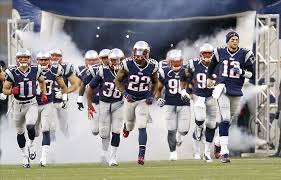 Love them or hate them, the Patriots approach to selecting, developing and using players has proven to be a core strength of the organizations. Malcolm Butler is just the most current example of how the Patriots under Bill Bellcheck’s ability to spot talent where others don’t see it. Players understand that they need to develop to be experts at their role and that they are expected to apply that expertise in flexible ways depending on what they see on the field. “I saw Wilson looking over there,” Butler said. “He kept his head still and just looked over there. So that gave me a clue, and the stacked receivers. I just knew they were going to throw. My instinct, I just went with it, just went with my mind and made the play.” The plays are designed to be both rigid and flexible, keeping the opposition guessing what will come at them. Martha Feldman’s (UCI) research on how routines enable creativity backs up the way the Patriot’s approach the game. The coaching staff does so in part knowing the potential of the players, by putting them through practices where they try out endless possibilities that may come up during the game and then In that way, players are prepared to step in and apply their expertise flexibly.
Love them or hate them, the Patriots approach to selecting, developing and using players has proven to be a core strength of the organizations. Malcolm Butler is just the most current example of how the Patriots under Bill Bellcheck’s ability to spot talent where others don’t see it. Players understand that they need to develop to be experts at their role and that they are expected to apply that expertise in flexible ways depending on what they see on the field. “I saw Wilson looking over there,” Butler said. “He kept his head still and just looked over there. So that gave me a clue, and the stacked receivers. I just knew they were going to throw. My instinct, I just went with it, just went with my mind and made the play.” The plays are designed to be both rigid and flexible, keeping the opposition guessing what will come at them. Martha Feldman’s (UCI) research on how routines enable creativity backs up the way the Patriot’s approach the game. The coaching staff does so in part knowing the potential of the players, by putting them through practices where they try out endless possibilities that may come up during the game and then In that way, players are prepared to step in and apply their expertise flexibly.
How might this translate to organizations? Many organizations hire experts just to tell them that their suggestions won’t work in this organization. Work is often codified into inflexible work processes that are expected to be implemented as stated in the manual. This leaves little opportunities for a rookie with little playing experience to step up and make the big play. Or worse, it makes people hide the real way work gets done so that they won’t be found out. Routines that can be updated through the actual work that gets done and where individuals can share their own practices with others fuel creativity and make for a winning team.
